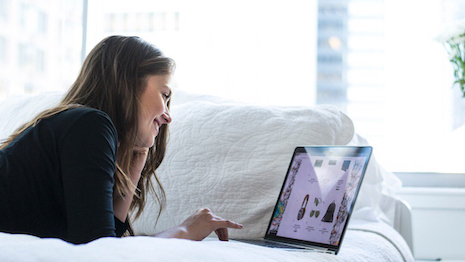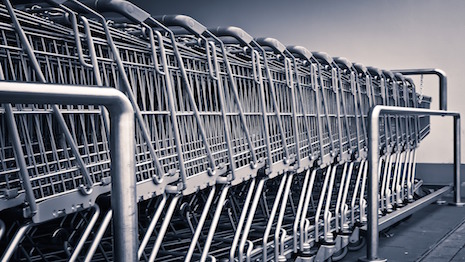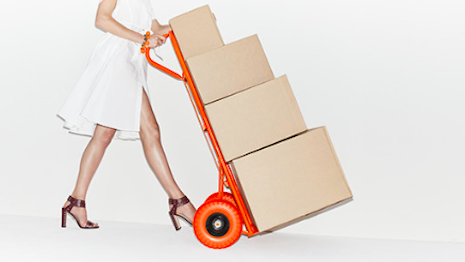 Consumers expect unified shopping experiences. Image credit: Saks Fifth Avenue
Consumers expect unified shopping experiences. Image credit: Saks Fifth Avenue As consumers see less separation between in-store and online retail, luxury brands and retailers are expected to offer more consistent experiences across channels.
According to a new report from Boston Retail Partners, three-quarters of consumers tend to choose retailers who offer consistent promotions and pricing across channels. Many retailers continue to struggle in implementing unified commerce, however.
“We have been talking about the cross-channel experience for so long – and in fact, 87 percent of consumers want a personalized and consistent experience across all channels – that it is still surprising to see that many retailers are still struggling to offer consumers a consistent experience across channels,” said Kathleen Fischer, director of marketing at Boston Retail Partners, Boston. “Many retailers have pieced together disparate systems and processes to try and create a holistic shopping environment, but it really doesn’t provide what the customer is looking for.”
Omnichannel obstacles
Although consumers have come to expect unified and holistic shopping experiences, only 5 percent of retailers can successfully give consumers the ability to “start a sale anywhere, finish the sale anywhere.”
Seventy-one percent of retailers plan to offer this capability within the next two years. To do so, retailers must support a single, shared shopping cart that is accessible from any channel where a consumer may be.
Consumers are starting to expect shared shopping carts across channels. Image credit: Pixabay
Currently, many retailers are offering “faux omnichannel” experiences consisting of manual processes or untethered systems that will need updating.
For instance, of the 86 percent of retailers that offer consistent pricing and promotions across channels, half report needing improvements. Similarly, 52 percent of retailers have implemented consistent product availability across channels but need to improve their capabilities.
Other pain points include cross-channel order tracking and the ability to accept returns through different channels.
Retailers need to do more than improve the initial purchasing experience, since fulfillment is an extension of the consumer journey.
Although click-and-collect services are growing in popularity, BRP argues that these offerings are a stop-gap as 55 percent of retailers hope to offer same-day delivery within two years. Only 18 percent are currently offering same-day delivery successfully.
Third-party delivery is also likely to grow, with 36 percent of retailers expecting to implement this service in the next two years.
Retailers are looking to offer consumers more flexibility in how they make and receive orders, by offering services such as “buy online, ship to store,” “buy in-store, ship from vendor” or “reserve online, pick up in-store.”
Click-and-collect is a pathway to same-day delivery. Image credit: Nordstrom
Technology is essential in ensuring consumers enjoy personalized and seamless shopping experiences across channels, leading retailers to invest in improved inventory management systems, integrated customer relationship management platforms and predictive analytics.
Almost half of retailers point to disparate systems as hindering their innovation in these areas, while 61 percent also point to budget constraints.
Omnichannel opportunities
While affluents are increasingly drawn to online shopping because of convenience, omnichannel shoppers spend more on luxury items than the average on- or offline consumer.
According to Forrester Analytics’ Luxury Retail Forecast, nearly 60 percent of luxury sales growth will originate from ecommerce by 2023. More than 90 percent of affluents worldwide purchase luxury goods and services, but only 5 percent are responsible for a third of luxury spend (see story).
Luxury brands may not think of retailers and brands such as Target, Walmart and Kohl’s as competition, but they have the platforms that are setting the standards for the shopping experience.
Convenience, quality and trust are some of the most important aspects affluent consumers consider when choosing a retailer or brand to shop with today, according to a Forrester analyst during a keynote at Women in Luxury 2019. Luxury marketers often look to their competitors to see what they are up against, but many brands often forget that their affluent consumers are also shopping at mass retailers, whose experiential offerings are often extremely advanced (see story).
Ultimately, the majority of consumers, particularly affluents, are expecting seamless, personalized shopping experiences.
“We can thank Amazon for bringing personalization to our everyday purchasing,” BRP's Ms. Fischer said. “We have become used to getting personalized recommendations based on what we previously purchased or even just researched online.
“Personalization becomes even more critical when applied to luxury retailing as these customers overall expect more personalized service and will be less forgiving if they are not recognized and rewarded for being a loyal customer,” she said.

